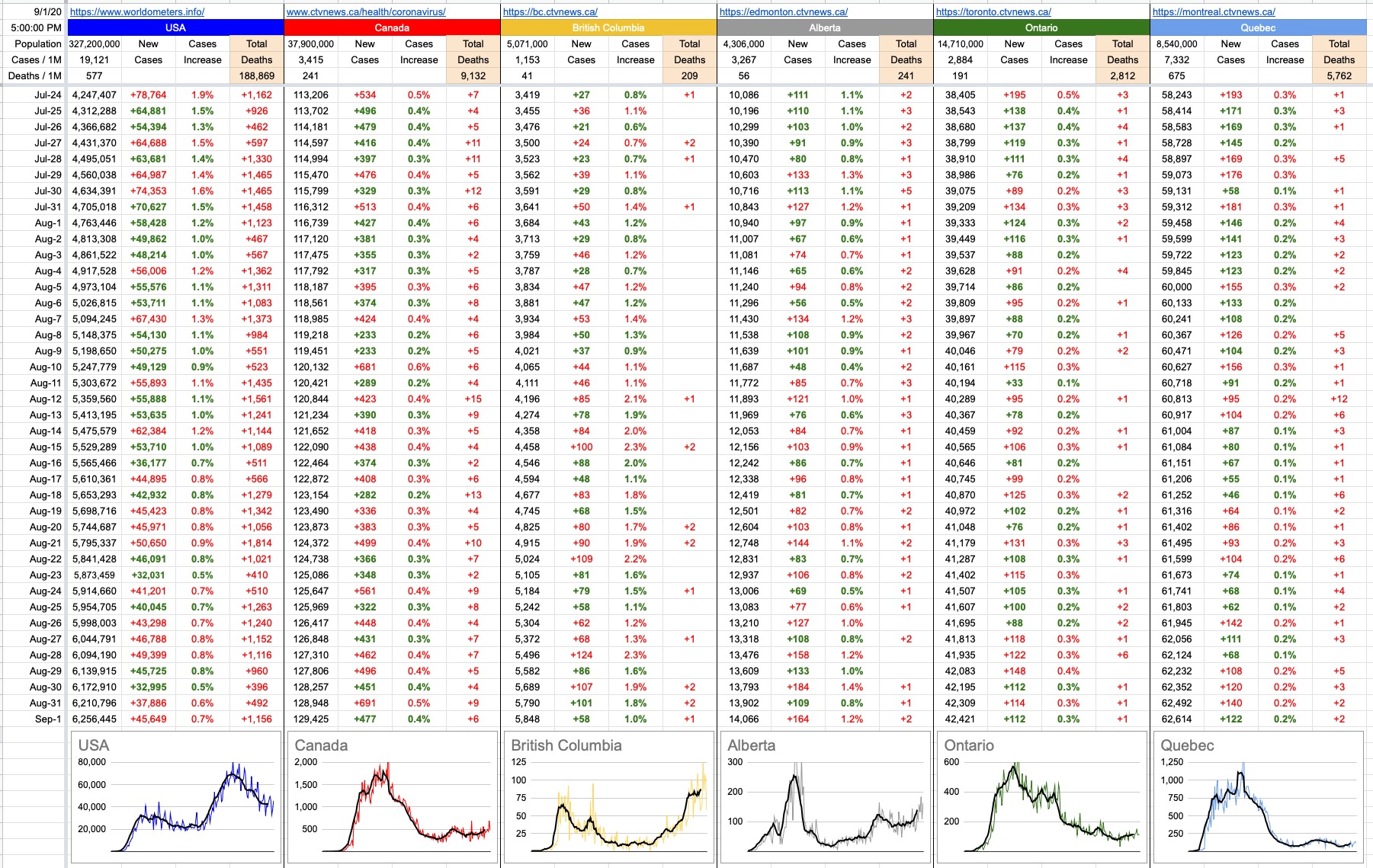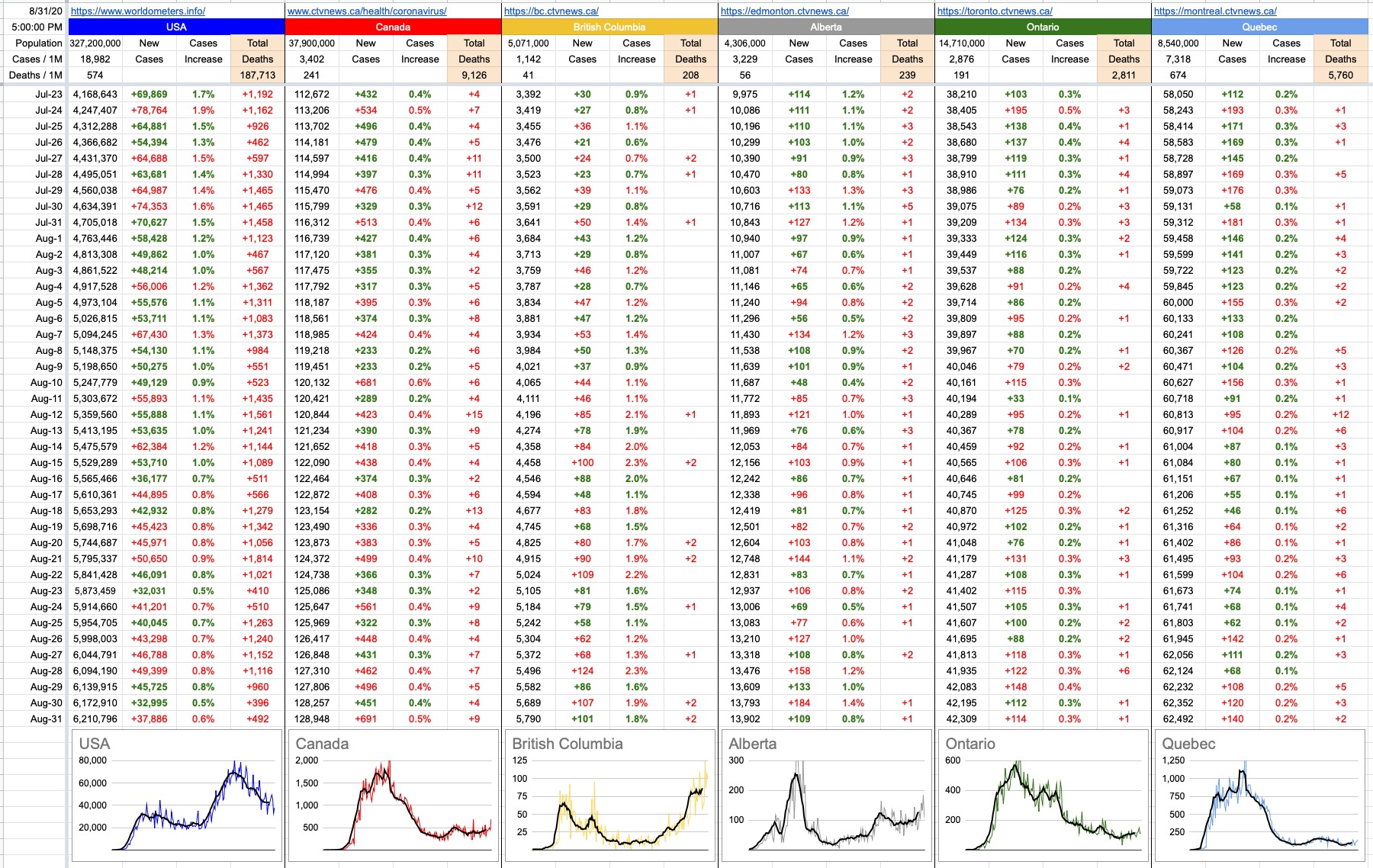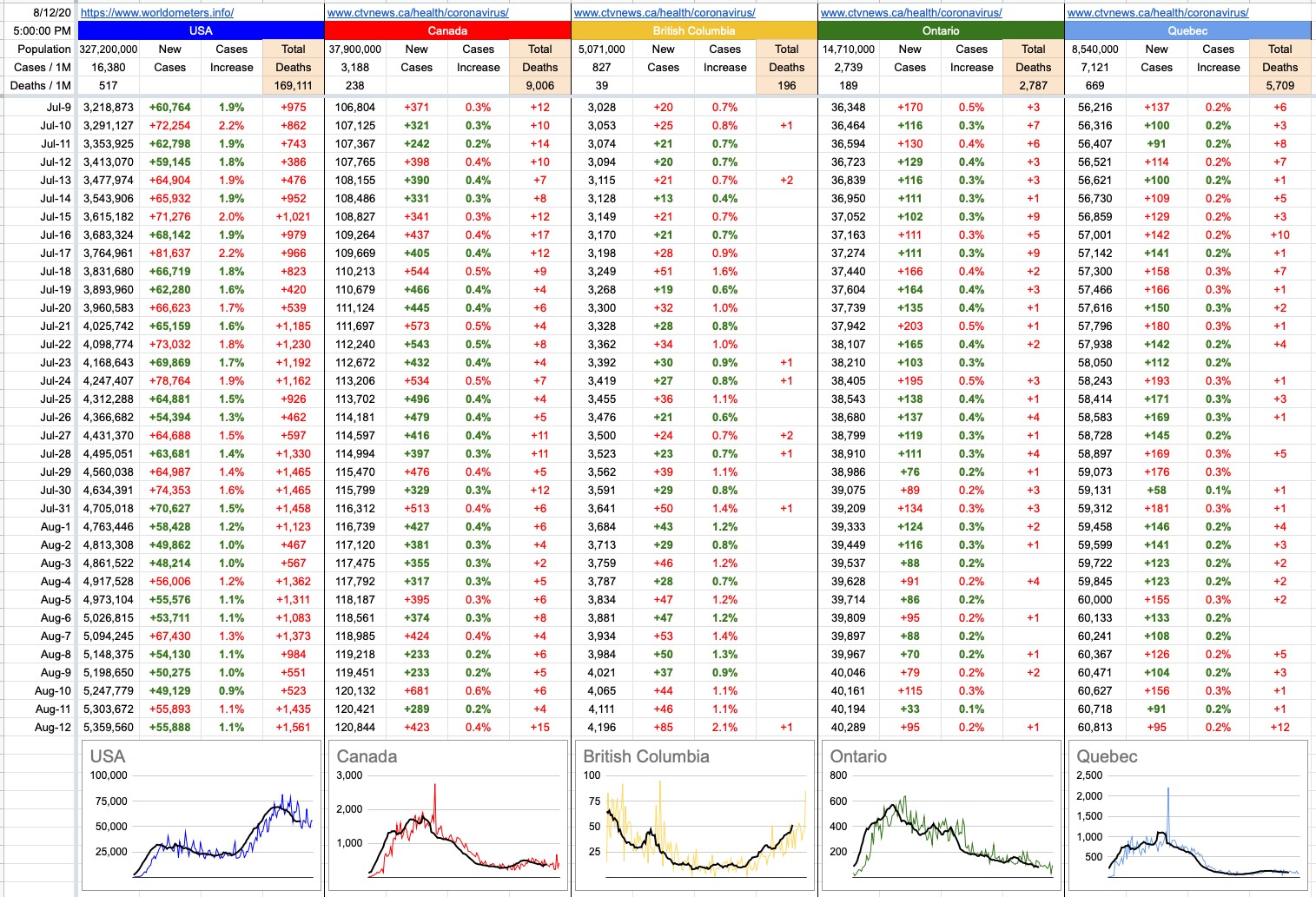September 10, 2020
Well… it’s become very clear what I need to write about if I’m trying to get a reaction. Little anecdotes about my life are fun to write and people seem to enjoy them. Bashing on Trump seems to get the usual reaction from the usual people, but to be honest, it’s died down… either because they’ve come to their senses or have decided they don’t like arguing with me.
But when I try to state some simple facts… like hey, here are some numbers, and here’s what they mean and what they imply… wow. Some people whose minds are already made up sure don’t like hearing alternative points of view. Like it’s all some big conspiracy. To be clear, while there are certain things that are opinions or theories, some things are just blunt facts. At the end of the day, when you take away all the vague hand-waving, certain things are not up for discussion. They’re not “opposing opinions”.
Indeed, when it comes to debunking conspiracy theories, there’s usually a “backstop” fact that really should put things to rest, at least for any reasonable person. All the little nit-picky out-of-context details of “proof” to confirm some outlandish claim are easily put to rest by one “umbrella” fact that’s indisputable.
Obama born in Kenya? There are birth announcements in the Hawaiian newspapers at the time. All of the copies, michrofiched versions, scanned, digitized, etc… over the decades, all indisputably in agreement. Set aside the long list of BS claims, forged birth certificates and bribed doctors and nurses… just explain that.
Moon landings faked? The technology to fake a moon landing simply didn’t exist in 1969. The ability to seamlessly film hours of footage and then play it back in slow motion… how? With what?
The holocaust was a hoax? The numerous census numbers at the time, including Germany’s, all agree… and all imply a European Jewish population of around 9.5 million in 1933. That number was found to be around 3.5 million by 1945. The simple math begs a simple question: Where are all those people?
Similarly, the great Covid-19 pandemic will ultimately fall back to a simple number: Excess deaths. Tests per million, positives per test, deaths per positive… etc etc.. I know all these numbers, ratios and percentages well. Many of you evidently disagree with those numbers, as published and verified as they may be. I find myself answering lots of questions after yesterday’s post.
But let’s take a big step back from all of the nitty-gritty numbers… which, to be clear, are presently being used to figure out what happened, what’s happening today, and what’s likely to happen in the future. It has nothing to do with today’s numbers, as if they’re a frozen statistic. Statements like “the flu kills more people” are foolish because this virus hasn’t finished killing people. It was being heard at the start of the pandemic… and sure, a month into it, the flu annually kills more people. Except people kept dying, and still keep dying. We’re at 5x the annual flu deaths, and counting, yet that particular statement keeps popping up. At what point do even the most die-hard Covid deniers finally, grudgingly admit that maybe this is more serious than they thought? 10x the flu deaths? 100x the flu deaths?
At this moment, in the U.S., close to 196,000 Covid deaths have been reported. Also, at this moment, the U.S. excess-death count is somewhere around 220,000. That discrepancy might be attributable to Covid deaths that weren’t recorded as such. Or someone’s heart attack brought on by the stress of the pandemic. Or illness that didn’t get treated as a result of the pandemic. Or suicide. Whether that latter list counts as a Covid death is a separate discussion. What’s not up for debate is that at this moment, and at a continuing rate of 1,000 per day, people are dying in the U.S. that otherwise wouldn’t be.
Also, a separate discussion… if this pandemic were to magically end today, were the steps taken worth it? Here’s the thing…. “Was it worth disrupting the economy to save 200,000 lives” is only a valid question, in hindsight, when you have the right number to plug in there. Unfortunately, 200,000 isn’t the number… and we’re still pretty far from knowing what that number will ultimately be.
And if you’re still calling bullshit on all of this, as per my “umbrella backstop” questions of above, here’s a simple one… if Covid-19 didn't kill these 200,000 people, what did?
View Original Post and All Comments on Facebook











